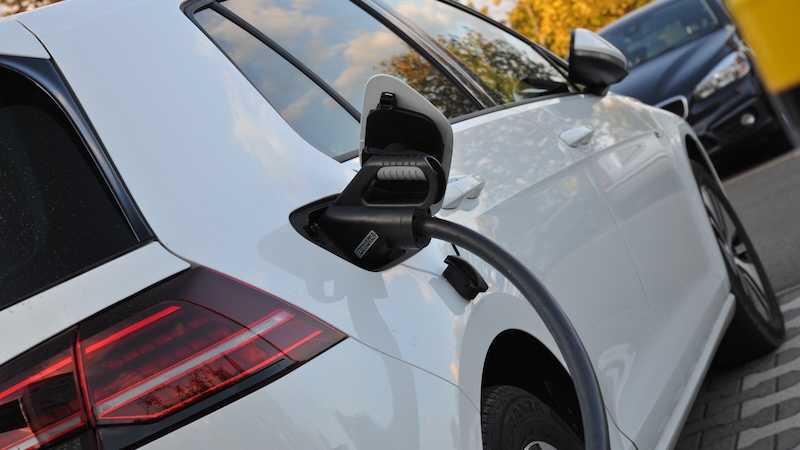The article Energy consumption: How much electricity do electric cars really use? by Maria Gramsch first appeared on BASIC thinking. You can always stay up to date with our newsletter.

There are more and more electric cars on German roads. But how much electricity do such vehicles really use? As part of a current study, researchers have determined the specific electricity consumption of electric cars.
Although the environmental bonus for buying an electric car abruptly ended at the end of 2023, the number of registered electric cars in Germany continued to increase this year. This was the total in Germany in October 2024 around 1.59 million electric cars approved. In 2022 the number was still around 620,000 vehicles.
But before making a new purchase, there are a few questions to ask – for example, about the actual power consumption of an electric car. However, since there are currently no energy labels for electric cars, this is difficult to assess.
Researchers at Trier University have therefore taken on this problem and Energy efficiency of 342 electric car models determined. They also provide information about what actually influences the electricity consumption of electric cars.
How much electricity do electric cars really use?
For their study, the researchers only looked at purely battery-electric models. Hybrid models and hydrogen-powered cars were not taken into account in the study.
Data on real electricity consumption in road traffic from the Spritmonitor database was included in the study. The researchers also compared these with the information provided by the manufacturers. Previous studies on the efficiency values of electric cars were also taken into account.
The calculations showed, on average, a real electricity consumption for electric cars of 20.7 kilowatt hours (kWh) per 100 kilometers. In comparison, the manufacturer’s figures are 19.4 kWh per 100 kilometers. The real range calculated by the researchers is on average 383 kilometers. Manufacturers claim an average range of 438 kilometers for their vehicles.
“We find that the real energy consumption is around seven percent higher than the certified energy consumption,” says the specialist magazine Sustainability MDPI published publication.
These results should be taken into account by policymakers. If verified through larger data sampling, the type approval process may need to be adjusted to ensure consumers receive accurate information about the energy consumption of electric vehicles.
What affects the energy consumption of electric cars?
According to the researchers, individual driving behavior, outside temperatures and the condition of the roads have an influence on electricity consumption. This explains the difference between the manufacturer’s information and the actual power consumption.
The shape and size of a vehicle in turn influence the energy efficiency of electric cars. E-SUVs therefore have the greatest power consumption.
For every 100 kilograms of vehicle mass, energy consumption increases by 0.2 ± 0.1 kilowatt hours per 100 kilometers. For every 0.1 square meter of frontal area, energy consumption increases by 0.9 ± 0.1 kilowatt hours per 100 kilometers.
While size, weight and drag coefficient have an enormous influence on the power consumption of electric cars, this does not directly apply to engine performance and price. However, upper-class models are often equipped with an above-average battery. This increases the weight, which in turn can increase power consumption.
Also interesting:
- Perovskite solar cells: miracle material increases efficiency and service life
- Graphite trick: New electric car battery can be charged in 15 minutes
- Heat battery: Electric stones heat air or gas to almost 2,000 degrees
- New technology: Old car engines convert methane into green fuel
The article Energy consumption: How much electricity do electric cars really use? by Maria Gramsch first appeared on BASIC thinking. Follow us too Google News and Flipboard.
As a Tech Industry expert, I can say that the amount of electricity consumed by electric cars can vary depending on several factors, such as the make and model of the vehicle, driving habits, and charging methods. Generally speaking, electric cars are more energy-efficient than traditional gasoline-powered vehicles, as they convert a higher percentage of the energy from the electricity into motion.
On average, electric cars consume around 0.3 to 0.4 kWh per mile, which is significantly lower than the 0.8 to 1 kWh per mile consumed by gasoline-powered cars. This means that electric cars are more cost-effective to operate in terms of energy consumption.
However, it’s important to note that the environmental impact of electric cars also depends on how the electricity used to charge them is generated. If the electricity comes from renewable sources such as solar or wind power, then electric cars have a much lower carbon footprint compared to gasoline-powered vehicles.
Overall, electric cars are a more sustainable and energy-efficient option for transportation, and their energy consumption can be further optimized through smart charging practices and the use of renewable energy sources.
Credits